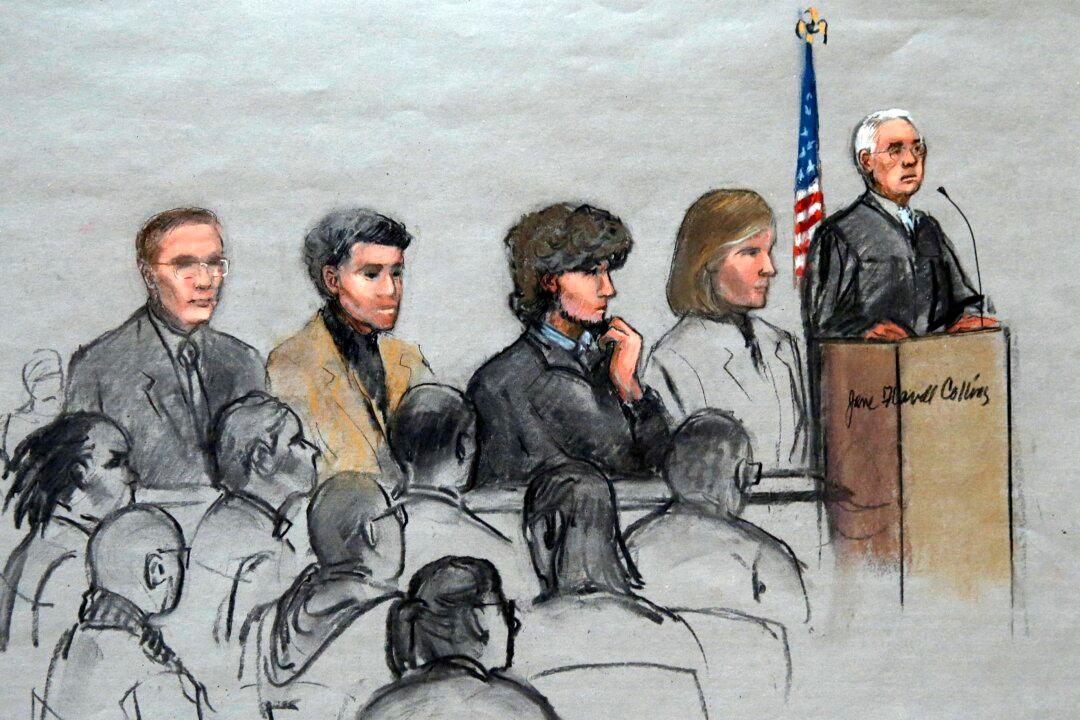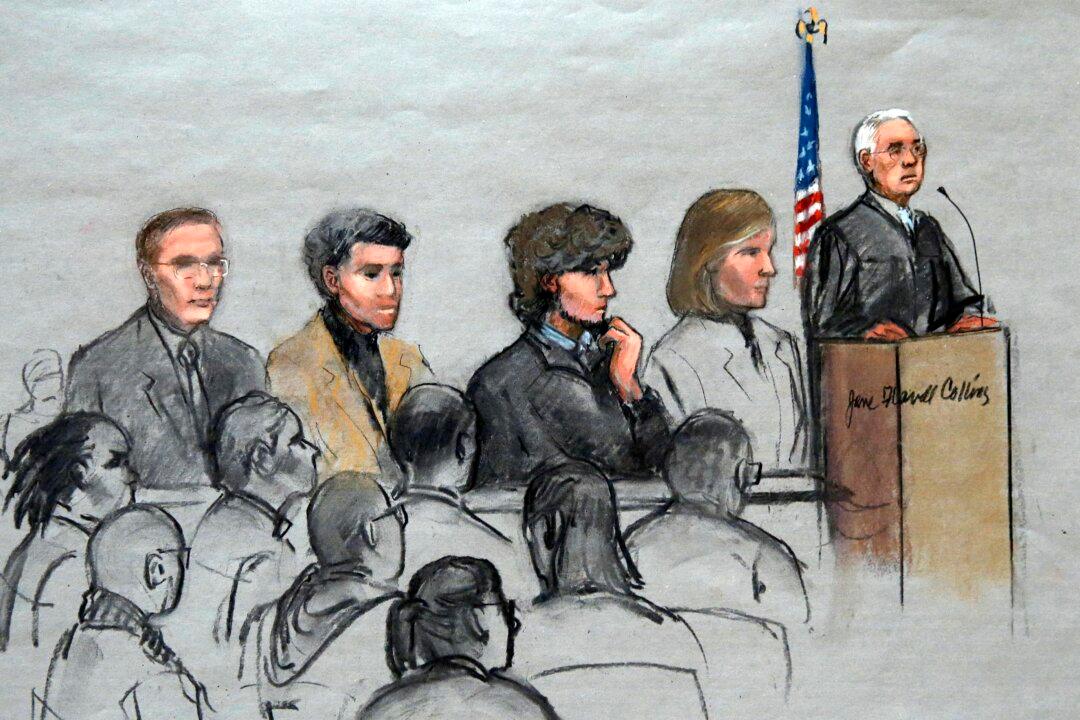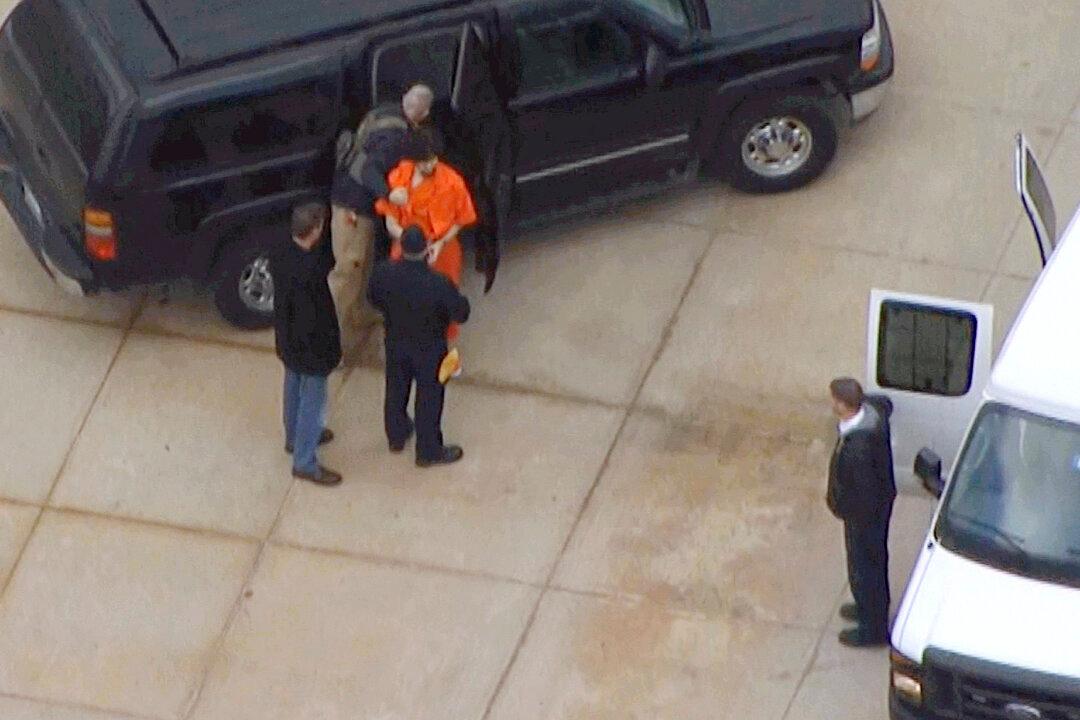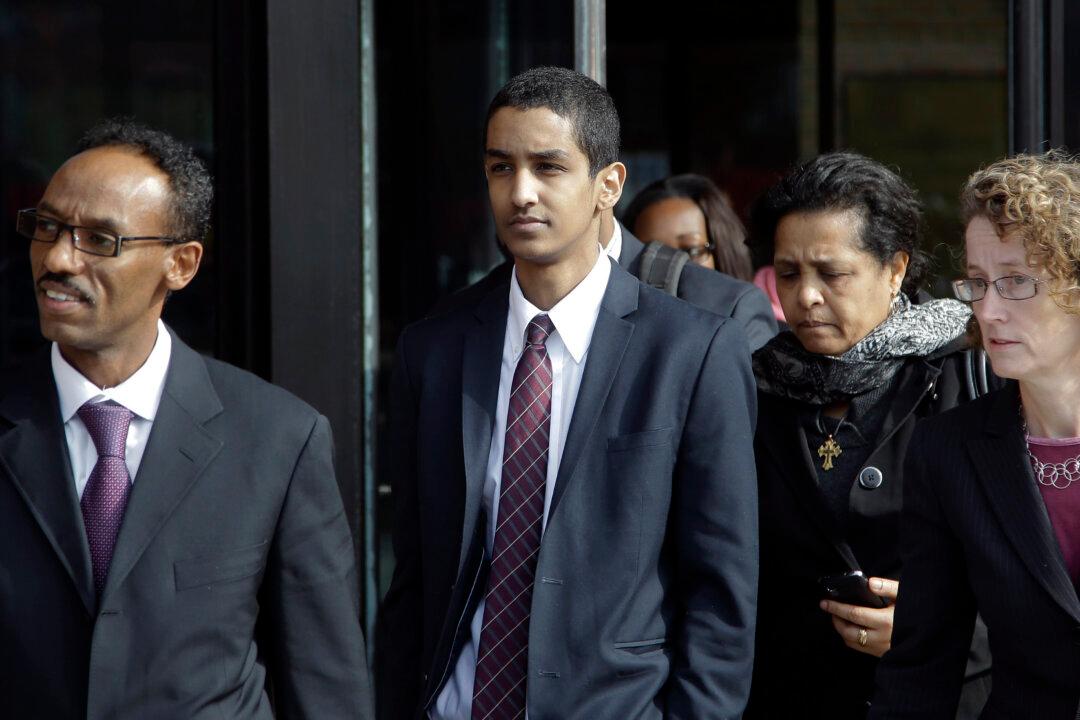BOSTON—To try to save him from the death penalty in the Boston Marathon bombing, Dzhokhar Tsarnaev’s lawyers will probably look for jurors who are intellectually curious and eager to learn about other cultures and religions.
Prosecutors, in turn, will no doubt try to pick conservative, patriotic types who have steady work habits, have lived comfortable lives and are particularly sensitive to the randomness of the terror attack.
Such is the conventional wisdom among jury consultants and other legal experts who say the question of whether Tsarnaev receives a death sentence will be all but decided during jury selection.
Tsarnaev, 21, is accused of taking part in the twin bombing at the finish line of the race on April 15, 2013, killing three people and wounding more than 260. He is also charged in the slaying of an MIT police officer.
Prosecutors say Dzhokhar and his brother, Tamerlan — ethnic Chechens who had lived in the United States for about a decade — carried out the attack in retaliation for U.S. wars in Muslim countries. Tamerlan, 26, died in a gunbattle with police days after the bombing.
Given the evidence against Dzhokhar — including incriminating graffiti on the boat where he was captured, and video of him planting a backpack at the site of the one of the blasts — legal experts say there is little doubt he will be found guilty.
They say his lawyers are concentrating instead on saving him from a death sentence from the jury during the penalty phase. They are expected to argue that Tsarnaev had a difficult childhood and fell under the malignant influence of his older brother, who embraced a radical brand of Islam.
“Any time the death penalty is on the table, the defense is going to want people who will look past the crime and try to understand why. Not just what happened, but how could this happen and why did this happen, what was the rationale?” said Karen Fleming-Ginn, a jury consultant who worked for prosecutors in the trial of Oklahoma City bomber Timothy McVeigh and has supplied her expertise to defense attorneys in 60 other capital cases.
Fleming-Ginn said the defense will look for jurors who are naturally curious, like to travel and want to learn about the world.
“Typically, these are people who are educated, they can see shades of gray a little bit better, they are not going to be black and white, they might have more of a sense of mercy,” she said.
The government is likely to seek out jurors who have lived life on the straight and narrow.
“The prosecution will be looking for people who are more law-and-order types — people in that rigid-neck kind of way — who are willing to impose the death penalty,” said John Blume, a Cornell University professor and director of Cornell’s Death Penalty Project, which conducts research on capital punishment.
Fleming-Ginn said the common perception that mothers and female teachers and nurses tend to be sympathetic to defendants has not proved true in the dozens of trials she has handled, and it could hurt Tsarnaev. Tsarnaev was 19 at the time of the bombing. One of those killed was an 8-year-old boy.
“Motherhood could cut both ways in this case,” she said.
Gerry Leone, a former state and federal prosecutor who led the prosecution of shoe bomber Richard Reid, said it will be important for prosecutors to exclude anyone who might be sympathetic to the argument that the older brother “was this coercive, intimidating, controlling figure who so dominated his younger brother that it caused him to do things that he otherwise wouldn’t have done.”
To be chosen for the jury, jurors must be deemed “death-qualified,” meaning they must be willing to consider imposing the death penalty. Those opposed to capital punishment under any circumstances cannot serve.
Finding death-qualified jurors in a state historically opposed to the death penalty poses another set of problems. Massachusetts abolished its death penalty in 1984 and numerous attempts to reinstate it have failed. The case against Tsarnaev is being brought in federal court.
Jury selection is expected to take at least three weeks. The process began Monday. About 800 potential jurors have been called in and asked to fill out questionnaires. An additional 400 will report to court Wednesday.
The unusually large pool of 1,200 was deemed necessary because of the heavy news coverage of the tragedy and the large number of people affected by it.
Tsarnaev’s lawyers asked repeatedly that the trial be moved out of Boston, where the bombing had a traumatic effect. The judge refused.
From The Associated Press



